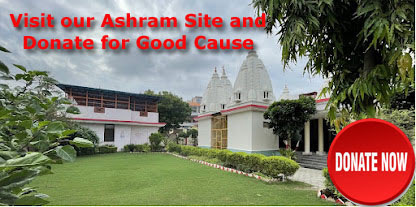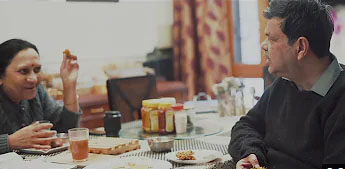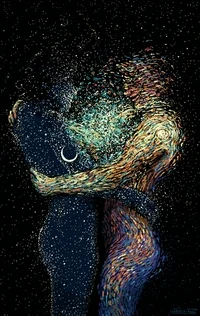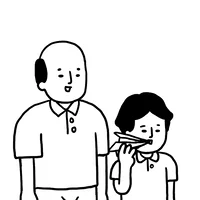They say “love is what love is”, as it can not be described by way of words.
Yet, most of the historical legends, mythologies, poetry, plays, films, even
monuments and icons revolve around the epicenter of love. Here, I am not talking about the love for God, divine being, nature, wisdom, celebrity,
mentor, parent, progeny etc. Although, they all are different hues and shades
of same state of heart and soul, but the focus of this article is love between
two opposite sexes. Austere minds sometime label it carnal, erotic or base
without understanding that man has been created with this instinct and emotion.
It is peculiar in itself in numerous ways. One can not intentionally lit up
love for a certain girl or boy. It happens when it is written.
In ancient Greek, Latin, Arabic and Persian astrological discourses, love
matters are considered from 5th house and beloved one is seen from 5th lord and
Venus. In Indian astrological treatises, 5th house and 5th lord are not given
that much significance for aforementioned affair. But again, ancient sages of
India do consider 5th house as the abode of love, however not for the mundane
or carnal love, but divine love: a love for creator or beloved deity, chanting
the name of deity in love, reciting god’s name etc.
Nonetheless, both – Occidentals and Orientals – are agreed on the natural
causative planet (karaka) of love between two sexes, which is none but Venus.
On the other hand, jyotish canons explicitly mark 7th house and Venus for
business of love, by the name of kama (desire or longing), lobha (cupidity) and
mada (besides intoxication, it also means ardent passion and lust). There is
another word in Sanskrit, “bandhu”, which is associated from 4th house of
chart, and generally translated as relative, fast friend, or sometime beloved
one. But it can not be termed girlfriend, boyfriend or spouse in modern
parlance. Bandhu is any affectionate friend (whether blood relative,
batch-mate, neighbour or coworker) who unconditionally supports you in good and
bad time. Like in earlier tribal and agrarian life, kinsmen of one’s own clan,
allies of one’s caste, or supporter relatives were called bandhu. Yet in
anyway, love of bandhu is not the love between two sexes.
The concept of wife in earlier times, viz., kalatra, jaya, bharya, and yauna
may now be translated as girlfriend or lover. Since the institution of marriage
has revolutionized in 20th century. Until 19th century, most of the marriages
were taken place at teen ages. But now in 21st century, males (especially urban
dwellers) usually go for marriage near or after age 30, while females usually go
for courtship after completing 25. However, in between adolescent and wedding,
both male and female establish intimacy, which sometime results in wedlock and
sometime not. Western society has now accepted premarital relation (sex before
marriage) as part of culture. While in east, establishing premarital relations
is still considered a wayward perhaps taboo. But emotional relationship
(without physical liaison) has been becoming a common practice in metropolitan
lives of eastern society. This typical behaviour entails importance of 7th
house from Moon (both in male and female nativities). By 7th from natal Moon,
one should not confuse with Moon as co-significator of wife and Sun as
co-significator of husband. Mind that this notion of co-significatorship is more
popular among practitioners of tropical zodiac. Conventional jyotish followers
do not buy this theory. They simply entitle Venus as wife or girlfriend and
Mars as husband or boyfriend. Some northern Indian jyotishis take Jupiter as
husband while some nadi texts mark Venus+Mercury as girlfriend.
Apart from female partner or girl friend, “lobha” (means love, sexual desire,
cupidity etc.) is again an exclusive jurisdiction of Venus both in male and
female horoscopes. All astrological schools accept this attribute of Venus. It
explains the way, how one falls in love. Placement of Venus in mooltrikona,
swakshetra, or uccha (either in rasi or navamsa) surely yields a soul painted
by eros and cupid. Aspect of Jupiter over such a Venus is indeed a gifted combination.
R. Santhanam holds that retrogression of Venus (especially under aspect of
Saturn) is ominous for enjoying inter-personal happiness. It sometime unearths
deep rooted misunderstanding about intimacy and sometime produces love-hate
relationship. This signature may entail failed affair in early life and later
disturbed marital life. On the other hand, Moon in the sign of Venus,
especially in Libra, reveals a mind highly sensitive towards love business.
Interestingly, very few people are aware of the fact that English word “love”
and Latin term “libido” are driven from Germanic word “liob” which itself taken
from ancient Sanskrit term, “lubhaeti” or “lubhyati”. Lobh and lubhana being
its derivatives are still in vogue in various vernaculars of Indian sub
continent.
Some modern interpreters and practitioners suggest that relations between a
girlfriend and a boyfriend, especially in western countries and eastern
urbanized societies, should observe from 12th house (which stands for sexual
relation) rather 7th house (which indicates legal marriage according to
established social norms). Although it holds some weight but it can not be
generalized for all lovers, since many a couples, even today, are not
stimulated by mere sexual desires. However, short term cohabitation without
wedlock may judge from 12th house. This is somewhat akin to Gandharva Vivah,
one of the 8 kinds of marital relationships, Manu Smirti expounded.
Earlier scholars have also paid significant importance to 6th house for
“sapatni”, (co-wife, fellow mistress) and pratiyuvati (concubine, courtesan).
In present day context, sapatni should imply extramarital relations and sexual
liaison with others, when one is already married. In female chart, 6th house
indicates possibility of extramarital relations of her boyfriend or husband.
Followers of western astrology still rely on 5th and 11th houses for love and
friendship respectively. However, traditional perhaps strict adherents of
jyotish do not endorse this thesis. Despite, many modern Vedic astrologers have
espoused this notion without any hesitation.
For friendship, difference of opinion on 4th and 11th houses is already
described in earlier paragraphs. Interestingly enough, old jyotish scriptures
opine to see 4th house for judging first place of intercourse in life as well
as for mandap (wedding place). Nowadays it may imply place of date in general.
Avoid dating, when a natural malefic, Moon or Sun transits 4th or 8th house
(especially in vipat, pratyak or naidhana tara) from janma rasi (radical Moon).
Combinations of Love and Romance
Following are choice planetary combination in a natal horoscope that result in
love affair. I have avoided giving long list of relevant yogas, as it often
confuses the students and difficult to memorize. Secondly, most of the yogas
(in available books and online blogs) generally focus marriages, late marriage,
divorce, death of spouse etc. While western practitioners mainly bank upon sign
placement of Venus rather sound applicable combinations. That’s why learners
and amateurs do not easily find astrological aphorisms for love and romance.
Here I’m presenting a few. Some of them are gathered from standard jyotish
texts while rests are my observations.
1) Native will fall in love when in rasi or navamsa, Venus and Moon are
mutually related by aspect or conjunction.
2) One will encounter a love affair, when Mercury and lunar nodes (Rahu/Ketu)
are mutually related. Similar result matures when Mercury and Moon are
sambandhi.
3) Without retrogression, should lord of 1st house in 7th house or lord of 7th
house in 1st house: one will go for a love marriage.
4) Venus or its dispositor when aspected by Saturn generally shows prolonged
longing with one person, whereas Venus conjoined Saturn often gives more than
one liaison.
5) Lord of 7th with Venus or relation between dispositor of Venus and 7th house
leads to falling in love.
6) If Venus is sambandi with Mars, or 1st lord is sambandi with 7th lord then
native will be very passionate and may easily fall in love (However, Venus
conjoined Mars is not a welcome combination for a happy relationship).
Combinations of Failed Affairs
7) When Venus is conjoined or aspected by Saturn, and neither 7th lord nor
Venus gets shubh argala or shubh drishti, then a miserable end of intimacy is
indicated. Moreover, pain of parting terribly hurts the native if Moon occupies
in the navamsa of Venus or Saturn.
8) For male nativities, Venus in 12th or 6th house having aspect and
association of at least two natural malefics; and for female nativities, Mars
in 12th or 6th house having aspect and association of at least two natural
malefics reveals failed affair as well as separation from spouse.
9) Lord of 7th or Venus in rasi/navamsa of Virgo and a malefic in Libra makes
one bereft of true happiness in love. Even s/he may go for many relationships.
10) Saturn in planetary war with Venus and opposite to Moon; or Saturn in
planetary war with Mars and opposite to Venus; or Venus in planetary with Mars
and opposite to Moon, gives uncountable affairs and enormous breakups.
11) If AL and A7 are placed 6th-8th or 2nd-12th to each others; and malefics
occupy in 2nd and 4th from UL then shortcoming in emotional relationship is
indicated.
12) In male charts, Jupiter (without retrogression) be in 6th or 8th from
afflicted Venus; and in female charts, Jupiter (without retrogression) be in
6th or 8th from afflicted Mars, results in failed relationship. However, such a
Jupiter in retrogression gives partial happiness after initial failure.
Timing Love Affair
13) In natal chart, if Jupiter aspects/conjoins Venus or Mars (as the chart
belongs to male or famle respectively), then during second guru-parayaya (age
13-24), transit of Jupiter over, opposite to trine to natal Venus or Mars
produces emotional intimacy with opposite sex.
14) When Mercury and Lunar Nodes, or Mercury and Moon form love yoga in the
natal chart, then transit of Jupiter, over, opposite to trine to these radical
planet yields beginning of love affair.
15) If Saturn aspects/conjoins Venus (both in natal charts of male and female)
then, transit of Saturn over, opposite to trine to natal Venus brings beloved
one in life


































No comments:
Post a Comment